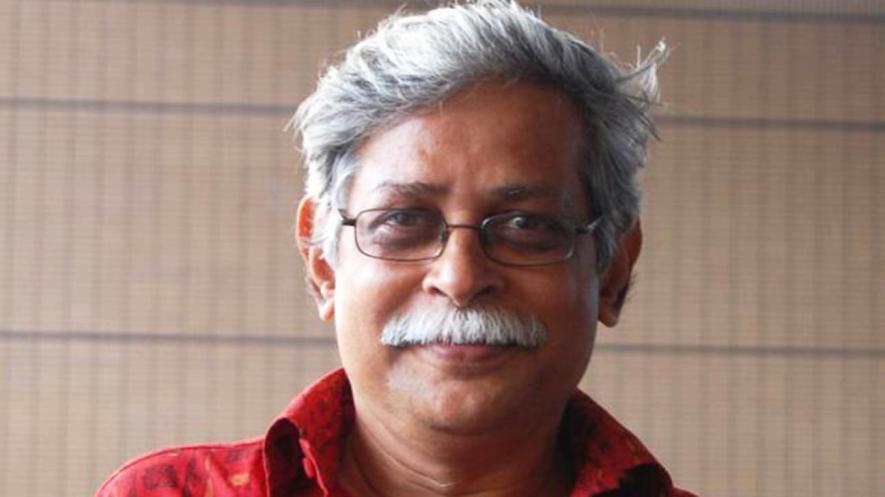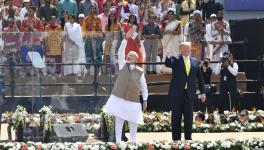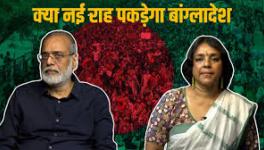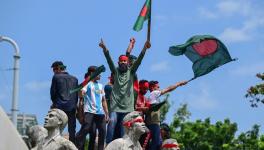Hashtag Love For Prof. Zafar Iqbal

Image Courtesy: The Daily Star
Stabbed Professor Zafar Iqbal, stabbed Bangladesh! Yet another attack on the progressive front of the country. The iconic educationist, scientist and one of the key scholars of the progressive movement in the country professor Zafar Iqbal was stabbed by knife on the 3rd March in his own campus at Sylhet while attending an event. He survived the knife attack, and doctors have located total six injuries around his back side of the head, back and left hand. Though the medical team ensured that Prof. Iqbal is out of danger, but certainly Bangladesh is not!
The series of attacks on dissidents and muzzling freedom seems unrelenting in Bangladesh. And it is more threatening that, every time, the attacks are being justified in the name of religion. There is a suggestive sequence of attacks against Taslima Nasrin and poet Shamsur Rahman in the 1990s, Humayun Azad in 2004 and science writer Abhijit Roy along with many bloggers-publishers in 2015. This is why progressive and liberal Bangladeshis are alarmed about deteriorating socio-cultural security. Anyone with a different perspective runs the risk of losing life in such circumstances. In the wake of a youth blogger driven social protest, popularly known as Shahbag Movement in Dhaka, a blogger Ahmed Rajib Haider was hacked to death by the militants associated with the Islamic groups in 2013. There were six gruesome murders of the secular writers, bloggers and publishers in 2015 that continued in 2016 as well. The writer professor Zafar Iqbal revered by the students and youths across the country has been extensively writing but never uttered a single line that could defame religion or Islam per say. But, to the suspect, who is a madrasa student, Prof. Iqbal is the “enemy of Islam”. Prof. Zafar Iqbal has been receiving such threats from groups who associate themselves with different Islamic organisations. The militant groups in Bangladesh have been bringing out lists of the ‘enemies of Islam’ whom they want to kill, and these so-called ‘hit lists’ had also contained his name. But, he has never stopped the struggle for a society that would uphold the principle of the liberation of Bangladesh – secularism, equity and social justice.
After the brutal attack, Bangladesh is shaken, the followers of professor Iqbal are agitated, and Bangladeshi students all over the world are reacting, expressing their concern. While the protest and resistance are the outcomes of natural human emotions, one needs to carefully take into consideration the present politico-cultural context. From the very moment of the attack, Prof. Iqbal has been requesting his students not to get agitated and violent. Because he knows it very well, some political merchants always wait to encash the protests for their political interests. Especially youth power has always been a lucrative element, out of which they wish to benefit. In the same way, we have seen how youth minds are captivated by Islamist leaders in the country. In 2013, thousands of the brain-washed youth came to the capital to ‘Save Islam’ and ‘Save Prophet Muhammad’ lead by the Hefazat-E-Islam (Protector of Islam). In the same year, we have seen popular protest organised by the youth bloggers at Shahbag getting terribly politicised and in the end, the organisers became the victims. Hence, one may easily be tempted to put on the sceptical lens while looking at these protests in the current socio-political milieu and also be careful in initiate a more extensive demonstration. Who knows, there might be already a political plot to capitalise your genuine protest?
After the attack on Professor Zafar Iqbal, we have seen the typical rigmarole in the traditional political landscape; the confronting political parties are pointing at each other while the issue is as crucially socio-cultural as it is political. It is pertinent to understand the challenges that we need to face in the socio-cultural dynamics of the country. Solely politics and political battle would not be able to solve the problem. While we need to run a social movement to usher in freethinking, the political culture has created a binary between religion and freethinking. Even the prime minister of Bangladesh had earlier warned the writers to maintain a limit to practice their freethinking so that the religion does not get harmed. The burgeoning question is why to make a Janus-faced reality between the religion and free thinking? Why disseminate an idea among the generations that, if one is practising freethinking she is bound to humiliate religion? Why is there a purposive confusion created in society? Is there a petty political agenda behind that?
The prime minister expressed her concern after the attack on Prof. Zafar Iqbal, and she said, “those who are committing these crimes are fanatic”. If there are fanatics who are targeting, killing, raping in the name of religion, then it is not too hard to realise that the society is running into crisis. There is a serious psychological game that is been played, an ideological plot is being put into the social system. We need to understand the persisting gap in the minds of the youths. And we need to find out, how to minimise the gap. By increasing the power of the law-enforcement group it could only be possible to suppress the extremism, but it would not help in ending the fanaticism. It would not be achieved either by killing or arresting. What we could do is what professor Zafar Iqbal has always suggested to us. He has been insisting on bringinging changes in our education, bring out social movement and spreading the light of progressive thoughts in all sections of our society. He has been asking for bringing out a policy that is not exclusively for the urban elites who would uphold the secular-progressive ideas but an inclusive attempt that will not leave alone the young minds from margins or Madrasas. The people who are in power should ask themselves if enough has been done to begin something on that line?
There have been protests all across the country after the attack on Professor Iqbal. But let’s not raise a slogan to “burn the camps of extremism”! Let’s not so easily raise a slogan to “resist the extremists”! Rather, let’s try to find out this time, who is the real behind the scene culprit of this outfit of ‘extremism’! Are we sure that we are fighting the real demon? Are we sure, the Madrasa student who attempted to kill professor Iqbal is the prime architect of the attack? If we don’t know, we need first to be careful of not falling into another trap. We also need to know that in our society, lots of youth minds, either from Madrasa and non-Madrasa background perceive the “freethinking” and “progressive-minded” as “anti-Islamic”. And afterwards, they attempt to eradicate the “enemies of the Islam”. So, the issue is crucially socio-cultural, hence we need to find out the way out accordingly. Only the protest-agitation would not be enough. That would lead us to fall into another silly trap. This is the high time to talk against those who have been patronizing fanaticism. We need to speak against those who have not taken enough socio-cultural and educational initiatives after knowing the fact that the extremism is persisting in the society. Now it is our turn to unmask the political forces who have always been opportunistically taking ‘political’ and ‘electoral’ benefit from the existence of religious extremism. We also need to understand, creating a protest movement does not just mean to occupy the street and holding the placard, neither is it to get exposure in the media, for becoming the headline. A progressive social movement has to be generated through the education and culture from top to bottom of the social system, and that has to be continuous. Thus, after this attack, let’s clarify to the political opportunists that, you have failed terribly to minimize the gap in understanding the principle of this nation and essence of liberation. And, let’s also tell them: we are well aware about the fact that some of you have been trying to materialize this attack. We need to say to them, we will not allow taking any political interest out of the attack on professor Zafar Iqbal, but indeed show how much Bangladesh love you and want you. Thus, we would only trend the hashtag #Love_For_ZafarIqbal!
Ratan Kumar Roy is a Research Scholar at South Asian University and Journalist from Bangladesh.He can be reached at [email protected].
Disclaimer: The views expressed here are the author's personal views, and do not necessarily represent the views of Newsclick.
Get the latest reports & analysis with people's perspective on Protests, movements & deep analytical videos, discussions of the current affairs in your Telegram app. Subscribe to NewsClick's Telegram channel & get Real-Time updates on stories, as they get published on our website.
























